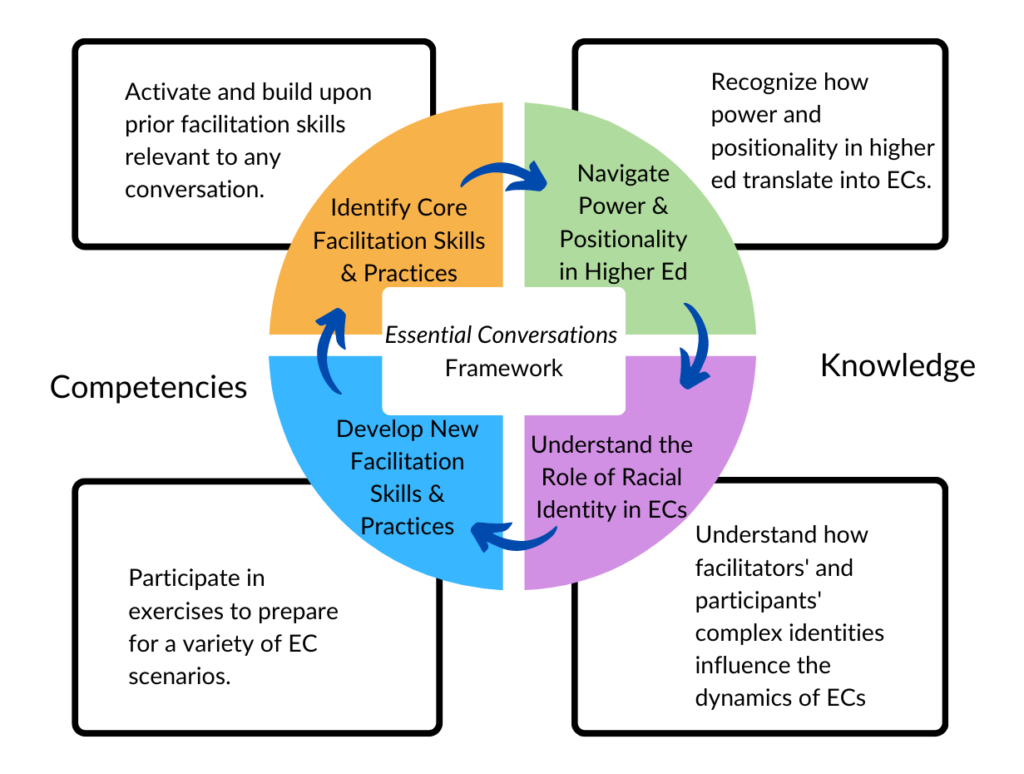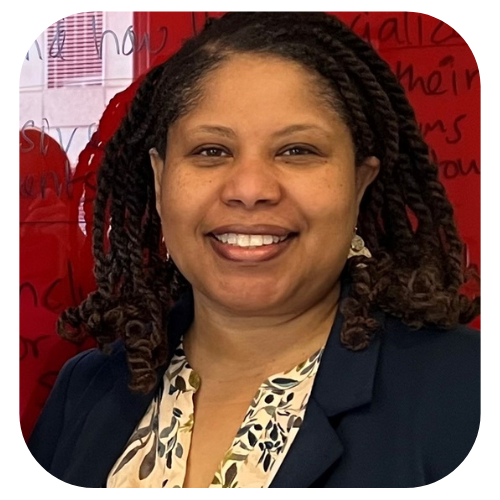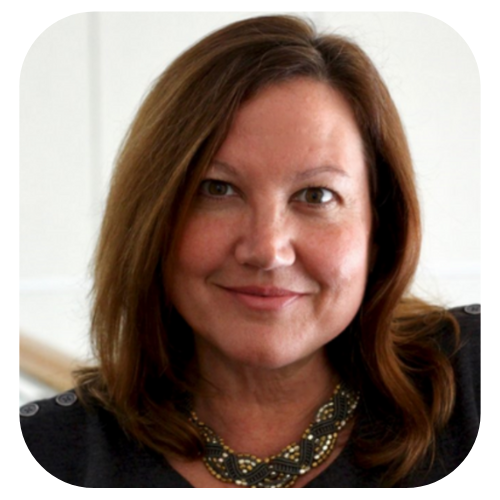Essential Conversations
Essential Conversations Facilitation Workshop
As we promote racial literacy across the university, faculty are increasingly called to engage in planned and spontaneous conversations relating to Northeastern community members’ diverse identities, perspectives, and lived experiences. The ADVANCE Office of Faculty Development and Social Impact Lab have created Essential Conversations workshops to provide faculty with the information and expertise to navigate such conversations. Essential Conversations workshops introduce facilitation techniques designed to optimize the benefits and minimize the unintended harms from potentially polarizing conversations about race, identity, power, and privilege.

Participant Commitment
Participants must commit to attending the entire day-long session and completing pre-work assignments in advance (1-2 hours). We will collaboratively establish additional ground rules for our time together but ask that you come into this experience prepared to reflect on your own identity and respect all participants’ privacy.
Participants in Essential Conversations Facilitation Workshop have an opportunity to co-facilitate a conversation circle. Four circles are underway in 2022-2023.
Essential Conversations Circles
Participants in Essential Conversations Facilitation Workshops have an opportunity to co-facilitate a conversation circle. Essential Conversation Circles are open to all faculty and create communities that foster growth on participants’ anti-racist journeys.
Ally, Collaborator, or Co-conspirator: What does it mean to show up for other people?
Facilitators: Rebecca Riccio, Khaled and Olfat Juffali Director of the Social Impact Lab; Lecturer of Human Services and Diedra Wrighting, Executive Director of ADVANCE Office of Faculty Development
People may experience marginalization and harm in everyday situations based on a wide range of identities. What should we do when we see this happen? We will explore ways to support and advocate for others to create more inclusive and equitable workplaces. Circle members will learn about and discuss the unfair treatment various identities face. We will explore ways we can recognize opportunities and take action to show up for others.
Creating your personal DEI action plan
Facilitators: Jackie Isaacs, Professor and Vice Provost for Faculty Affairs, Mechanical & Industrial Engineering, College of Engineering and Mariah Nobrega, Assistant Dean for Research and Faculty Development, Office of the Dean, College of Engineering
Northeastern has required DEI plans for academic units – but how do each of us create our own action plan that aligns with our unit but is personal to our roles, interests, and experiences? This circle aims to empower members to make positive DEI changes with support from peers.
Educators Creating Psychologically Safe Spaces
Facilitators: Melissa Berry-Woods, Director of Student Diversity & Sucess, Office of the Provost and Diedra Wrighting, Executive Director of ADVANCE Office of Faculty Development
Educators strive to provide rich learning experiences for all our students. This circle will focus on building awareness and understanding of five identity categories: race, social class, gender, sexual orientation, and disability. With this knowledge and awareness, we will explore practical, research-based strategies and activities for having difficult conversations and creating more inclusive classrooms.
White Men Talk Race
Facilitators: Sean O’Connell, Associate Teaching Professor, College of Professional Studies, and Roben Torosyan, Senior Associate Director, Center for Advancing Teaching and Learning Through Research
This circle seeks white men who share the aim of becoming antiracist, and who want to approach the topic in the spirit of humility and learn and grow in this context. Participants will consider their privileges and create a space to reflect and converse in a supportive environment.
Upcoming Workshops and Circles
If you’re interested in honing your facilitation skills and joining an Essential Conversations Circle, fill out the form below to express your interest in either facilitating a circle or joining a future circle.
Resources
We encourage you to take advantage of the many resources available to support your anti-racist journey. Below are some that we have found useful for building the foundation for a facilitation practice.
Articles
- Confronting One’s Own White Fragility – Robin DiAngelo
- How Can White People Hold Each Other Accountable?
- The Four Bodies: A Holistic Toolkit for Coping with Racial Trauma – Nappy Head Club
- Things Never to Say to a Foreign Born Colleague
- Things NOT to Say to LGBT People – Doug Case and Jean-Marie Navetta
Books
- Student Engagement in Higher Education: Theoretical Perspectives – James M. Thomas
- The Racial Healing Handbook: Practical Activities to Help You Challenge Privilege, Confront Systemic Racism, and Engage in Collective Healing (The Social Collective Healing, The Social Justice Handbook Series) – Anneliese A. Singh
- Why Are All the Black Kids Sitting Together in the Cafeteria?: And Other Conversations About Race – Beverly Daniel Tatum
- Microaggressions – Derald Wing Sue
- Microinterventions – Derald Wing Sue
- Biased: Jennifer Eberhardt
Podcasts
Article
- Academia isn’t a Safe Haven for Conversations About Race and Racism – Tsedale M. Melaku and Angie Beeman
- Confronting the (White Supremacist/Hyper-Capitalist) “Frenzy of Activism”
- Pew Analyzes Americans’ Feelings About Company Statements on Racism
- Why Are Colleges So Cowardly? – Tom Bartlett
- 5 Steps We Must Take to Truly Create an Inclusive, Representative, and Equitable Society – Penny Bauder
- Black and Brown Students Want Black and Brown Mentors. What’s a Primarily White Institution to Do? – S. Brooke Vick
Books
PDFs:
Podcast:
Video:
Articles:
- Group Facilitation – A Step by Step Guide – Giovanni Ciarlo
- 11 Ways to Facilitate Great Conversations
- 22 Mindfulness Exercises & Activities For Adults – Courtney E. Ackerman
- How to Start a Meeting with a Mindful minute – Wendy Quan
- Center Yourself Before You Enter Coaching Conversations – Thomas F. Crum
- Weekly Centering Activities
Books:
- So You Want to Talk About Race -0 Ijeoma Oluo
- We can’t Talk About That at Work! How to Talk About Race, Religion, Politics, and Other Polarizing Topics – Mary Frances Winters
- Race Talk – Derald Wing Sue
Acceptance: An ethnorelative mindset on the Intercultural Development Continuum where individuals recognize and appreciate patterns of cultural difference and commonality in their own and other cultures.
Accomodation Style: An intercultural conflict style preferred by many Asian cultures and characterized as indirect and emotionally restrained.
Adaptation: An ehtnorelative orientation on the Intercultural Development Continuum that is capable of shifting cultural perspective and changing behavior in culturally appropriate and authentic ways. Adaptation
involves both deep cultural bridging across diverse communities and an increased repertoire of cultural frameworks and practices available to draw upon in
reconciling cultural commonalities and differences.
Ally: a person that actively promotes and aspires to advance the culture of inclusion through intentional, positive and conscious efforts that benefit people as a whole.
Bias: an evaluation or belief that is favorable or unfavorable; you can have a bias toward an object, person, or concept that is positive or negative (Staats et al., 2017)
Civil Rights Act of 1964: The landmark civil rights and labor law in the United States that outlaws discrimination based on race, color, religion, sex, or national origin
Course Climate: the sum of student and instructor behaviors, and related student perceptions, that influence the emotional and social experience of the class; even in the most content-focused course, climate plays a dramatic role in what, how much, and how
effectively our students are able to learn (Ambrose et al., 2010)
Cultural Humility: The ability to maintain an
interpersonal stance that is other-oriented (or open to the other) in relation to aspects of cultural identity that are most important to the person
Cultural Identity: Feeling or sense of belonging to a specific social group (nationality, ethnicity, religion, class, generation, etc.) that has its own distinct culture. Cultural identity can be characteristic of the individual or shared characteristics among group members.
Culture: Shared beliefs, social norms, and traits of a social group. A set of shared attitudes, values, goals, and
practices that characterize an organization.
Denial: A mindset on the Intercultural Development Continuum that reflects less capability for understanding and appropriately responding to
cultural differences. Individuals with a denial
orientation often do not recognize differences in perceptions and
behavior as cultural. A denial orientation is
characteristic of individuals who have limited
experience with other cultural groups and therefore tend to operate with broad stereotypes and generalizations about the cultural other.
Disability: A condition or function that results in challenges associated with performing daily life activities such as walking, seeing, hearing.
Discussion Style: An intercultural conflict style characterized as direct and emotionally restrained. This style is most preferred by Euro-American, Northern European, and Canadian cultures.
Diversity: all the ways people differ from one
another. It includes readily visible identities and the underlying differences that may be hidden below the surface.
Dominant Group: A group with systemic power, privileges, and social status within a society. Dominant does not imply majority. In the US context, dominant groups include white, male, heterosexual identities.
Dynamic Style: An intercultural conflict style
common among Middle Eastern cultures,
characterized as indirect and emotionally expressive.
Education: (One of the 4Es) Gaining new knowledge and skills through instruction, study, and experiences.
Emotional Intelligence: the capacity to be aware of, control, and express one’s emotions, and to handle interpersonal relationships judiciously and empathetically.
Empathy: (One of the 4Es) Experience of
understanding another person’s condition from their perspective. You place yourself in their shoes and feel what they are feeling.
Engagement Style: An intercultural conflict style characterized as direct and emotionally expressive, most commonly found among African Americans, Greeks, some Western Europeans, and Latino cultures.
Essential Conversations: the conversations that need to happen to illuminate and eliminate the underlying issues related to race, power, and privilege that can derail
these conversations and render them ineffective.
Ethnocentric Worldview: Mindsets/orientations that assume the worldview of one’s own culture is central to
reality. (See also Denial and Polarization.)
Ethnorelative: A mindset that supposes cultures can only be understood relative to one another, and that particular behaviors can only be understood within a
cultural context. (See also Acceptance and Adaptation.)
Experience: (One of the 4Es) The extent to which one has intimately encountered, engaged with, and gained knowledge from being exposed to difference.
Explicit Bias: evaluations or beliefs, whether positive or negative, about people, objects, and ideas, that a person is aware of, endorses, and/or chooses to use as the
basis for decisions and behaviors (Staats et al., 2017)
Exposure: (One of the 4Es) The extent to which one comes in contact with cultural differences and diversity.
Glass Ceiling: A metaphor used to represent an invisible barrier that keeps a given demographic (typically applied
to women) from rising beyond a certain level in a hierarchy.
Historically Marginalized Groups: Societal groups that have been traditionally oppressed, excluded, or disadvantaged.
Implicit Bias: evaluations or beliefs, whether positive or negative, that exist without us even realizing it, typically formed on the basis of inaccurate information or stereotypes of people, objects, and ideas, that can impact our decisions, perceptions, and behaviors (Staats et al., 2017)
Intercultural Conflict Style Inventory: A cross-culturally validated assessment of an individual’s approach to communicating, resolving conflicts, and solving problems.
Intercultural Development Continuum: A theoretical framework that ranges from the more monocultural mindsets of Denial and Polarization through the transitional orientation of Minimization to the intercultural or global mindsets of Acceptance and Adaptation.
Intersectionality: A term coined by scholar Kimberle Crenshaw that describes the study of intersecting social identities (race, gender, class, etc.) and related systems of oppression. Intersectionality theory posits that multiple identities/isms are not mutually exclusive; rather, they intersect to create unique
experiences.
Ladder of Inference: Describes the thinking process that we go through, usually without realizing it, to get from a fact to a decision or action. The thinking stages can be seen as rungs on a ladder.
LGBTQ: An abbreviation that originated in the 1990s and replaced what was formerly known as the gay community. The abbreviation was created to be
more inclusive of diverse groups. LGBTQ stands for lesbian, gay, bisexual, transgender, and queer (and/or questioning) individuals/identities.
Micro-inequities: Subtle, often unconscious,
messages that single out, overlook, ignore, or
otherwise discount individuals or groups based on aspects of their social identities (e.g., race, gender).
Minimization: A transitional mindset on the
Intercultural Development Continuum that highlights cultural commonality and universal values and principles that can mask a deeper understanding and consideration of cultural differences. Minimization can take one of two forms: (a) the highlighting of similarities due to limited cultural self-awareness, which is more commonly experienced by dominant
group members within a cultural community; or (b) the highlighting of similarities more deliberatively as a strategy for navigating the values and practices largely determined by the dominant culture group, which is more commonly experienced by nondominant group members within a larger cultural
community.
Oriental: A somewhat outdated U.S. term used to describe people from East Asia. Now considered offensive by many when referencing people rather than objects.
Platinum Rule: An alternative to the widely known Golden Rule. The Platinum Rule encourages one to “Do unto others as they’d like done unto them.”
Polarization: An orientation on the Intercultural Development Continuum that reflects a judgmental mindset that views cultural differences from an “us versus-them” perspective. Polarization can take the
form of defense (“My cultural practices are superior to other cultural practices”) or reversal (“Other cultures are better than mine”). Within defense, cultural differences are often perceived as divisive and threatening to one’s own cultural way of doing things, while reversal is a mindset that values and may idealize other cultural practices while denigrating those of one’s own culture group. Reversal may also support the cause of an oppressed group, but this is done with little knowledge of what the cause means to people from the oppressed community.
Positionality: one’s social location or position assigned and negotiated as a result of combining various social factors or identifiers, including but not limited to: race,
sex, class, gender, ability, age, religion, sexual
orientation, nationality, physical stature, education, occupation, relational status, language, etc. (Hearn, 2012; Leistyna et al., 1996)
Privilege: A social theory that posits special rights or advantages are available only to a particular person or group of people. The term is commonly used in the context of social inequality, particularly in regards to age, disability, ethnic or racial category,
gender, sexual orientation, religion, and/or social class.
Reciprocal Learning: An instructional model where the traditional roles of mentor/coach and student/ mentee are shared between the pair.
Reverse Mentoring: A process in which an individual in a dominant group learns from someone in a non dominant group (e.g., a white male learns from an African American, or a baby boomer learns from a millennial).
SCCCCALE Framework: SCCCCALE is a guidepost that helps facilitators to remember 8 important concepts and behaviors of facilitation.
Sense of Belonging: students’ perceived social support on campus, a feeling of connectedness, or that one is important to others (Strayhorn, 2012)
Social Identity: the portion of an individual’s self concept derived from perceived membership in a relevant social group; our society strongly influences how we categorize other people and ourselves based on these identities in significant ways; social identities
influence the experiences we have as members of any particular group and are shaped by common history, shared experiences, legal and historical decisions, and day-to-day interactions (AAUW Diversity and Inclusion Tool Kit, 2009; Tajfel & Turner, 1979)
Social Identity Map: A method for visually
representing and assessing a person’s subjective network of group memberships.
Stereotype: beliefs that are mentally associated with a given category, typically a social category; even when we do not endorse them, these beliefs can unintentionally influence our mental processes (Staats et al., 2017)
Stereotype Threat: situations where one feels like they are at risk of confirming a stereotype about one’s group, which triggers a cycle of fear and worry about confirming the stereotype or being judged by the
stereotype; the resources devoted to managing these concerns take away from the ability to focus on the task at hand (Steele & Aronson, 1995)
Unconscious Bias: An unconscious judgement that happens automatically and is triggered by our brain making quick assessments of people and situations,
influenced by our background, cultural environment, and personal experiences.
University-Wide Training: Mandatory cultural competency and anti-racism training programs for all faculty, staff, and students on a regular basis.


